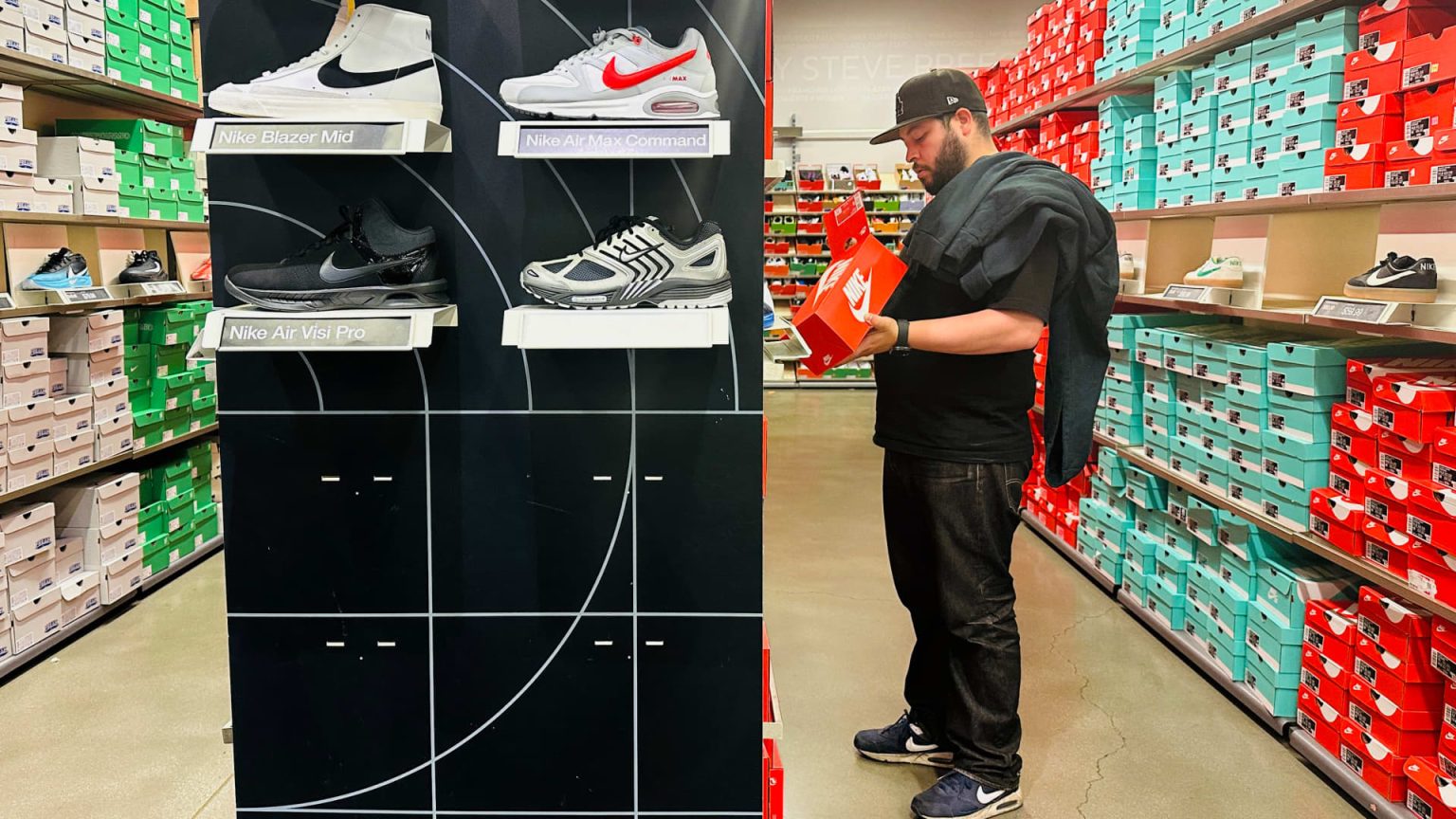In a significant move, America’s leading shoe brands are urging President Trump to reconsider the recently imposed tariffs that threaten the footwear industry. The request comes in the form of a letter from the Footwear Distributors and Retailers of America, signed by 76 prominent companies including Nike, Adidas, and Skechers. Industry leaders are warning that these tariffs, if not re-evaluated, could lead to major disruptions in inventory and increased prices for American consumers.
| Article Subheadings |
|---|
| 1) Footwear Industry’s Tariff Concerns |
| 2) Economic Impact on Consumers |
| 3) Immediate Industry Responses |
| 4) Background of the Tariffs |
| 5) Future Implications for American Manufacturing |
Footwear Industry’s Tariff Concerns
The Footwear Distributors and Retailers of America (FDRA), a trade group representing major footwear brands, recently reached out to the White House voicing urgent concerns regarding the tariffs imposed by President Trump’s administration. The group has stated that these tariffs pose an “existential threat” to the footwear industry, compelling them to request an exemption from the reciprocal tariffs. The letter is backed by a coalition of 76 renowned brands, including Nike, Adidas, Skechers, and Under Armour, indicating a united front against the financial challenges these tariffs present. The significance of this letter cannot be understated, as it reflects the major worries within a sector that employs thousands of Americans and caters to countless consumers nationwide.
Economic Impact on Consumers
The implications of these tariffs on consumer prices are concerning for many American families. The footwear industry has highlighted that many companies producing affordable shoes for lower and middle-income families are unable to handle the high tariff rates. The letter stresses that without immediate relief, these companies may be forced to shutter their operations, leading to job losses and decreased availability of affordable footwear options in stores. Industry experts believe that if tariffs are maintained, it may lead to a significant price increase, ultimately affecting consumer choices.
“Many orders have been placed on hold, and footwear inventory for U.S. consumers may soon run low,”
the FDRA articulated in its letter, indicating a ripple effect that could be felt across various sectors.
Immediate Industry Responses
Following the announcement of the tariffs, major brands in the footwear sector have publicly expressed concerns regarding their financial future. Specifically, Adidas warned that the tariffs will inevitably lead to increased prices for American consumers, underscoring the urgency of the situation. In late March, Nike‘s chief financial officer also addressed the economic repercussions of global tariffs, suggesting that these could result in diminished sales for the current quarter. The footwear association’s letter points out that with existing duties on children’s shoes and other products, tariffs have already reached rates between 150% and 220% for U.S. footwear companies. This further exacerbates cost challenges, making the industry spokespeople call for immediate action.
Background of the Tariffs
These sweeping tariffs were announced by President Trump on April 2, impacting several key countries that serve as suppliers for footwear, including China, Vietnam, and Cambodia. While the original rates were set at over 45% for some countries, adjustments led to a temporary reduction to 10%. However, the effective tariffs on Chinese imports have surged to as high as 145%, leaving American brands to navigate an increasingly complex economic landscape. The concerns raised by FDRA amplify the urgency for a reevaluation of the current tariff strategy, which critics argue does not effectively support the domestic manufacturing initiatives that the administration promotes. The letter’s language underscores that the emergency nature of this situation demands immediate attention from government officials.
Future Implications for American Manufacturing
Despite promises from the Trump administration to bring manufacturing back to the U.S., the FDRA argues that the present tariff structure undermines the certainty that businesses need for investment and operational adjustments. The group warns that rather than reviving manufacturing jobs domestically, the tariffs create a volatile environment unfit for long-term investment. In their appeal to the White House, they highlighted the need for a stable tariff structure that encourages growth, innovation, and competitiveness for American footwear brands. Without such reforms, the long-term viability of many footwear businesses remains in jeopardy, casting doubt on the industry’s ability to rebound from such an economic blow.
| No. | Key Points |
|---|---|
| 1 | Major shoe brands are seeking relief from tariffs impacting their industry. |
| 2 | Increased tariff rates threaten the affordability of footwear for American families. |
| 3 | Key brands expect significant financial repercussions if tariffs remain in place. |
| 4 | The imposition of tariffs reflects a complex economic strategy affecting global suppliers. |
| 5 | Industry advocates are calling for necessary adjustments to improve stability. |
Summary
The ongoing tariff situation poses significant challenges for America’s footwear industry, as major brands unite to press for action from the government. Their plea highlights not just the immediate financial implications for companies, but also the potential fallout for consumers and domestic manufacturing efforts. The circumstances call for a thorough reassessment of tariff policies to promote stability and growth while ensuring affordable options remain available for American families.
Frequently Asked Questions
Question: What are reciprocal tariffs?
Reciprocal tariffs are tariffs imposed by one country on another in response to similar tariffs imposed on its exports. They are intended to create balance in trade and can influence pricing across various industries.
Question: How do tariffs affect footwear pricing for consumers?
Tariffs increase the cost of importing goods, which can lead to higher retail prices for consumers. Footwear companies may pass these costs on to buyers, making shoes more expensive.
Question: What actions are being taken by the footwear industry in response to tariffs?
The footwear industry is collectively appealing to the government for tariff relief, expressing concerns over the negative economic impact of high tariffs on their operations and consumer pricing.


